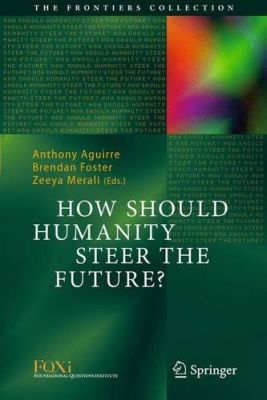Phew, we have a lot of ground to cover in this month's podcast.

Springer/FQXi
In the news round-up, Brendan and I discuss Hawking's new idea for solving the black hole information paradox, which he trailed in Sweden last week. It builds on holography, the idea from string theory that a lower dimensional copy of what falls into the black hole sits at the boundary of the black hole, that is at the event horizon. (You can read more about that idea in Sophie Hebden's article profiling FQXi member Andrew Strominger, "The Cosmic Hologram". Strominger has collaborated with Hawking on this new proposal, along with Cambridge University's Malcolm Perry.)
At the time of recording the podcast and posting this blog, we still do not know the details of this new theory. But there are promises that Hawking and his colleagues will be posting a paper on this soon. We'll update with more, as it appears. But the person to watch for the latest seems to be FQXi member Sabine Hossenfelder, who was at Hawking's talk, and is following developments over at her blog, Backreaction.
(Update 4 September 2015, Hawking's paper "The Information Paradox for Black Holes" has now been posted to the arXiv arXiv:1509.01147v1. This has slightly more detail than his talk, but apparently there is a still longer paper, written with Strominger and Perry, to come.)
Feel free to discuss the latest reactions to that, on this thread.
With help from Matt Leifer, an FQXi member and quantum physicist at the Perimeter Institute in Waterloo, Ontario, Brendan and I also run through the loophole-free Bell test that I blogged about last week, which seems to close the door on local realism (though I can see healthy debate about that on that thread).
On to our in-depth interviews: Reporter Carinne Piekema follows up her article and podcast interview with Keith Schwab last month on combining quantum mechanics and gravity in the lab, by chatting with Harvard's Igor Pikovski about an FQXi-funded project to discover whether time dilation -- the stretching of time due to gravity, in particular, in this case -- causes the quantum world to collapse into the classical one. (Read some of the background to this in reporter Sophie Hebden's profile of group member Caslav Brukner, "Time Dilation Gets a Quantum Twist.")
August 31, 2015
Hawking claims to solve black hole paradox & quantum spookiness passes toughest loophole-free test yet; relativity could cause quantum collapse; 5 steps for saving the world; quantum thermodynamics; & the physics filmmaker.
Full Podcast
Next up, it's Sabine Hossenfelder, of the Nordic Institute of Theoretical Physics, who, when she's not busy researching quantum gravity and blogging about Hawking, has been thinking about a way to make humans appreciate the best advice for saving the planet (and ourselves) and *crucially* to get them to act on it. That was the focus of her 2014 first-prize-winning entry in our "How to Steer Humanity" essay contest. Brendan caught up with Hossenfelder at the New Directions meeting in Washington, DC, recently, and asked her about how that plan is coming along.
And, if you enjoyed Hossenfelder's essay, and those of our other winners, then you'll be pleased to hear that the third compilation volume in our series with Springer, will be coming out in the next month, and is available for pre-order now.
We're back to the atomic realm with our next segment, in which UCL physicist Jonathan Oppenheim tells reporter Colin Stuart about how -- as engineers build nanorobots and tiny devices to be implanted in the body -- it is important to try to understand if quantum objects have their own thermodynamical laws. You can read more about that quest in Colin's article, "The Quantum Thermodynamical Revolution."
And finally, how do you make thrillers about physics? Who better to ask than physicist and filmmaker Dagomir Kaszlikowski, of the Centre for Quantum Technologies in Singapore? Kaszlikowski tells Brendan about how his childhood in communist Poland influenced him in his pursuit of both science and moviemaking, what he hopes his FQXi award-winning film "Seeing Without Looking" achieved, and if he was forced to choose between his two passions now, which he would pick.
You can read about Kaszlikowski's research, on "quantum contextually," in this article by Nicola Jones, who also talks about the practical applications of this branch of quantum theory, for computing. ("Quantum in Context.") And you can, of course, watch "Seeing Without Looking," which also stars FQXi member Vlatko Vedral as a criminal physicist, here.
[youtube: I7oZAo8hJnU, 560, 340]
(Updating on 1 September to add that Malcolm Perry's talk about Hawking's work is now available (below). Thanks to Sabine Hossenfelder for alerting me.)
[youtube: p1k3XKfl0CQ, 560, 340]